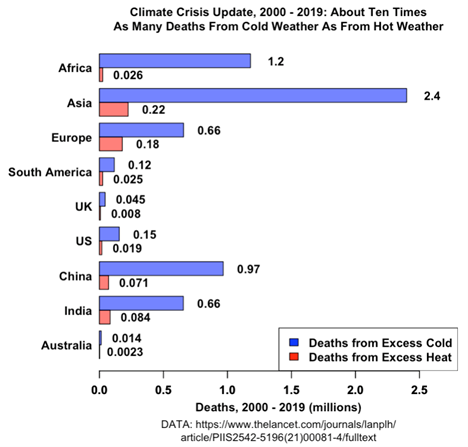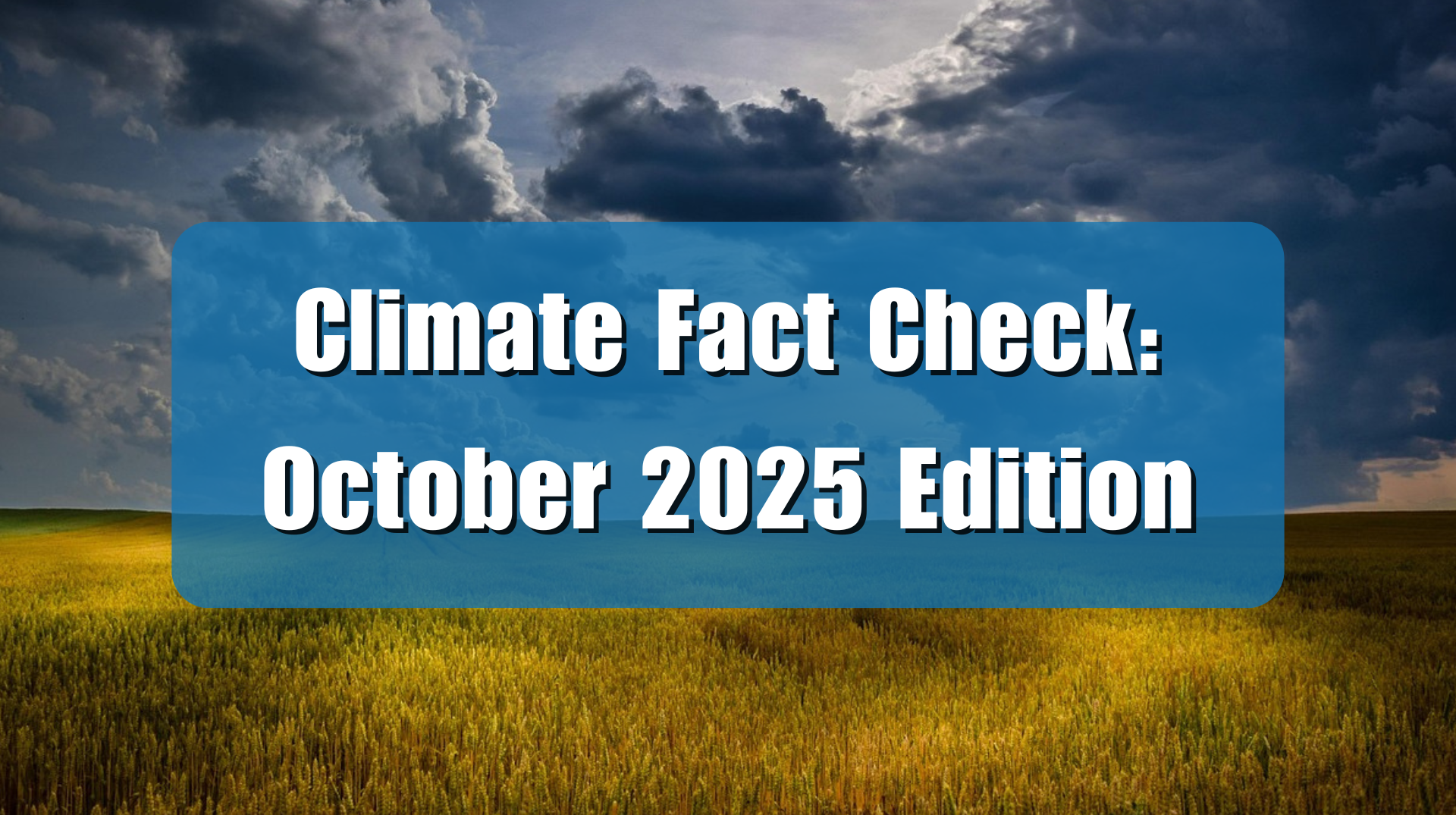A recent article in the New York Post debunks some of the most common falsehoods propagated about climate change. Contrary to alarmists’ claims regularly parroted by the corporate media, data demonstrates that life on Earth has become progressively easier for mankind amid modest warming.
Bjorn Lomborg, Ph.D, president of the think tank Copenhagen Consensus Center, authored the New York Post article, “Climate gains are ‘inconvenient truth’ — it’s not all bad news about the environment.” In the article Lomborg explains that wildfires are declining globally and neither heat waves nor storms are worsening, despite what the media often reports.
“We are incessantly told about disasters, whether it is the latest heatwave, flood, wildfire or storm,” writes Lomborg. “Yet the data overwhelmingly shows that over the past century, people have become much, much safer from all these weather events.”
This is true. As Climate Realism discusses on a daily basis, the corporate media often treats isolated weather events, short-term weather patterns, and natural disasters, as if they were due to climate change. As explained, here and here, weather is not climate. Lomborg covers too wide a swath of topics to review in a single Climate Realism post with sufficient detail absent just reposting his article as a whole. But each of the falsely claimed climate disasters Lomborg discusses has been covered thoroughly in numerous individual Climate Realism posts, for example: wildfires; weather disasters; Great Barrier Reef health; the population and health of polar bears; improvements in human life expectancy; air pollution; and the substantial number of cold deaths compared to relatively few deaths from extreme heat. Lomborg correctly shows each of these claimed climate disaster stories are actually climate success stories. Practically across the board, conditions have never been better for human flourishing.
To take one specific example from Lomborg’s article, he points out heat waves are far less of a problem than mainstream media coverage would lead one to believe. By comparison, the threat to human health and lives from cold temperatures are a much bigger issue, but the media hardly covers it. Lomborg writes that “almost everywhere, the cold quietly kills many more.” He goes on to say that cold deaths may actually rise due to “our incessant focus on climate change,” because “politicians have introduced green laws that make energy more expensive, meaning fewer people can afford to keep warm.”
It is a fact that deaths due to suboptimal cold temperatures dramatically outnumber deaths due to suboptimal heat, as reported by Climate Realism here, here, and here, for instance. A study in The Lancet found that cold weather kills almost ten times more people than heat does. (See figure 1 below).

It is also a fact, as Lomborg says, that public policies attempting to ban or greatly limit fossil fuel use are destructive. They necessarily make energy costs skyrocket, endangering the health and lives of the poor and middle class—those who can least afford to pay more for energy, by making it unaffordable for them to heat their homes in the winter. This is true in the United States and even more so in Europe, as their attempts to replace fossil fuels with renewables has failed, and led to rolling blackouts even before the current energy crisis.
Lomborg is right that the Earth is not hurtling towards apocalypse due to climate change, rather, the data shows quite the opposite is true: things are getting better.
If more corporate media outlets would run articles discussing climate change based on real-world data, as the New York Post has done, as Lomborg said, there would be much better balance in the news. Unfortunately, most major news outlets ignore the data, because their coverage is dedicated to hyping unrealistic scenarios of alarming climate change.
























Data can be just so inconvenient. (sarc off)